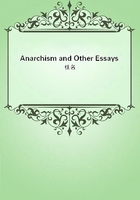THE CONSTRUCTIONS - THE CONSTITUTION OF 1791..
That which is called a Government is a concert of powers, each with a distinct function, and all working towards a final and complete end. The merit of a Government consists in the attainment of this end; the worth of a machine depends upon the work it accomplishes.
The important thing is not to produce a good mechanical design on paper, but to see that the machine works well when set up on the ground. In vain might its founders allege the beauty of their plan and the logical connection of their theorems; they are not required to furnish either plan or theorems, but an instrument.
Two conditions are requisite to render this instrument serviceable and effective. In the first place, the public powers must harmonize with each other, if not, one will neutralize the other; in the second place they must be obeyed, or they are null.
The Constituent Assembly made no provision for securing this harmony or this obedience. In the machine which it constructed the motions all counteract each other; the impulse is not transmitted; the gearing is not complete between the center and the extremities; the large central and upper wheels turn to no purpose; the innumerable small wheels near the ground break or get out of order: the machine, by virtue of its own mechanism, remains useless, over-heated, under clouds of waste steam, creaking and thumping in such a matter as to show clearly that it must explode.
I.
Powers of the Central Government. - The Assembly on the partition of power. - Rupture of every tie between the Legislature and the King.
- The Assembly on the subordination of the executive power. - How this is nullified. - Certainty of a conflict. - The deposition of the King is inevitable.
Let us first consider the two central powers, the Assembly and the King. - Ordinarily when distinct powers of different origin are established by a Constitution, it makes, in the case of conflict between them, a provision for an arbiter in the institution of an Upper Chamber. Each of these powers, at least, has a hold on the other. The Assembly must have one on the King: which is the right to refuse taxation. The King must have one on the Assembly: which is the right of dissolving it. Otherwise, one of the two being disarmed, the other becomes omnipotent, and, consequently, insane.
The peril here is as great for an omnipotent Assembly as it is for an absolute King. If the former is desirous of remaining in its right mind, it needs repression and control as much as the latter.
If it is proper for the Assembly to restrain the King by refusing him subsidies, it is proper for him to be able to defend himself by appealing to the electors. - But, besides these extreme measures, which are dangerous and rarely resorted to, there is another which is ordinarily employed and is safe, that is, the right for the King to take his ministers from the Chamber. Generally, the leaders of the majority form the ministry, their nomination being the means of restoring harmony between the King and Assembly; they are at once men belonging to the Assembly and men belonging to the King.
Through this expedient not only is the confidence of the Assembly assured, since the Government remains in the hands of its leaders, but also it is under restraint because these become simultaneously both powerful and responsible. Placed at the head of all branches of the service, they are, before proposing it or accepting it, in a position to judge whether a law is useful and practicable. Nothing is so healthy for a majority as a ministry composed of its own chiefs; nothing is so effective in repressing rashness or intemperance. A railway conductor is not willing that his locomotive should be deprived of coal, nor to have the rails he is about to run on broken up. - This arrangement, with all its drawbacks and inconveniences, is the best one yet arrived at by human experience for the security of societies against despotism and anarchy. For the absolute power which establishes or saves them may also oppress or exhaust them, there is a gradual substitution of differentiated powers, held together through the mediation of a third umpire, caused by reciprocal dependence and an which is common to both.
Experience, however, is unimportant to the members of the Constituent Assembly; under the banner of principles they sunder one after another all the ties which keep the two powers together harmoniously. - There must not be an Upper Chamber, because this would be an asylum or a nursery for aristocrats. Moreover, "the nation being of one mind," it is averse to "the creation of different organs." So, applying ready-made formulas and metaphors, they continue to produce ideological definitions and distinctions.
The King must not have a hold on the legislative body: the executive is an arm, whose business it is to obey; it is absurd for the arm to constrain or direct the head. Scarcely is the monarch allowed a delaying veto. Sieyès here enters with his protest declaring that this is a "lettre de cachet[1] launched against the universal will,"and there is excluded from the action of the veto the articles of the Constitution, all money-bills, and some other laws. - -Neither the monarch nor the electors of the Assembly are to convoke the Assembly; he has no voice in or oversight of the details of its formation; the electors are to meet together and vote without his summons or supervision. Once the Assembly is elected he can neither adjourn nor dissolve it. He cannot even propose a law;[2] per-mission is only granted to him "to invite it to take a subject into consideration." He is limited to his executive duties; and still more, a sort of wall is built up between him and the Assembly, and the opening in it, by which each could take the other's hand, is carefully closed up. The deputies are forbidden to become ministers throughout the term of their service and for two years afterwards.















